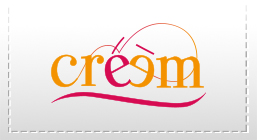Relapse prevention for addictive behaviors Full Text
Content
Vertava Health offers 100% confidential substance abuse assessment and treatment placement tailored to your individual needs. If you’re worried you might be heading towards a lapse or full-blown relapse, don’t struggle with this alone. If you’re currently lost within the confusion of the abstinence violation effect, we can help. We can give you resources to help you create or tweak your relapse prevention plan. Additionally, we will guide you to outpatient and inpatient treatment options.
What are 3 evidence based strategies for relapse prevention?
Three of the most common relapse prevention strategies have included therapy and skill development, medications, and monitoring. This activity describes relapse prevention interventions used in helping individuals recover from addiction.
As such, these cognitive constructs have both a stable and enduring effect emanating from the individual’s general cognitive beliefs as well as a malleable and plastic effect emanating from upon the individual’s moment-to-moment experiences. While relapse is a normal part of recovery, it is not inevitable, and you can take steps to avoid it. Relapse prevention plans may emphasize many of the skills abstinence violation effect learned in cognitive-behavioral therapy, such as identifying triggers and stressors and coping with cravings. The empirical literature on relapse in addictions has grown substantially over the past decade. Because the volume and scope of this work precludes an exhaustive review, the following section summarizes a select body of findings reflective of the literature and relevant to RP theory.
Abstinence Violation Effect: How Does Relapse Impact Recovery?
This perceived violation results in the person making an internal explanation to explain why they drank and then becoming more likely to continue drinking in order to cope with their own guilt. Quite frankly, studies that have attempted to look at lapse and relapse rates across different substances have discrepant findings because the terms are often defined differently. In addition, many individuals in recovery consider a single slip as a full-blown relapse.
When you are feeling overwhelmed, your brain may unconsciously crave drugs as a way to help you feel better. But you may have the thought that you need the drug or alcohol to help get you through the tough situation. Unconscious cravings may turn into the conscious thought that it is the only way you can cope with your current situation. Abstinence violation effect refers to the negative cognitive and affective reactions one experiences https://ecosoberhouse.com/ after returning to substance use after a period of abstinence. As a result of AVE, a person may experience uncontrollable, stable attributions, and feelings of shame and guilt after a relapse. When one of these occurs, the person who has relapsed experiences a twisted mindset that has him or her thinking that, since relapse has already occurred, there is no point in stopping their use now or trying to salvage their recovery.
How Do Substance Abuse Treatment Programs Help to Prevent Relapse?
A person may experience a particularly stressful emotional event in their lives and may turn to alcohol and/or drugs to cope with these negative emotions. An abstinence violation can also occur in individuals with low self-efficacy, since they do not feel very confident in their ability to carry out their goal of abstinence. As the foregoing review suggests, validation of the reformulated RP model will likely progress slowly at first because researchers are only beginning to evaluate dynamic relapse processes. Currently, the dynamic model can be viewed as a hypothetical, theory-driven framework that awaits empirical evaluation.
- But you may have the thought that you need the drug or alcohol to help get you through the tough situation.
- This dissonance can be reduced by either changing the behavior or changing the image, and characteristically in this population is resolved by the latter.
- The treatment is not lapse prevention; lapses are to be expected, planned for, and taken as opportunities for the client to demonstrate learning.
- While someone may experience a craving at any time, they are more likely to experience one when they encounter a trigger.
- However, despite findings that coping can prevent lapses there is scant evidence to show that skills-based interventions in fact lead to improved coping .
- For example, one could imagine a situation whereby a client who is relatively committed to abstinence from alcohol encounters a neighbor who invites the client into his home for a drink.
